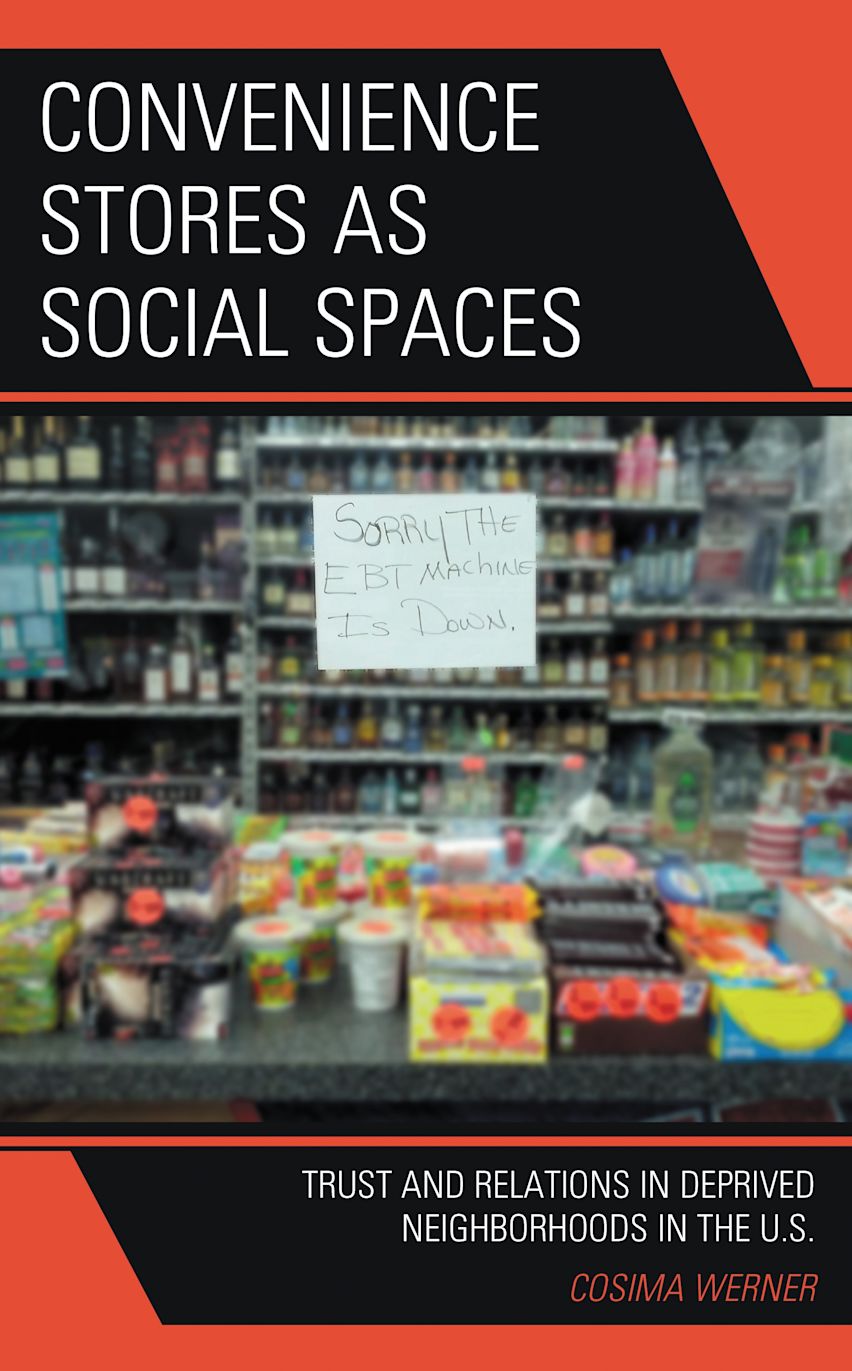Convenience Stores as Social Spaces
Trust and Relations in Deprived Neighborhoods in the U.S.
Convenience Stores as Social Spaces
Trust and Relations in Deprived Neighborhoods in the U.S.
Description
Liquor, tobacco, processed food, and sugary snacks: this is the range of products that are far from healthy available in convenience stores. Yetthese stores have become people’s resource for meeting daily needs in deprived neighborhoods in the United States. In her book, Convenience Stores as Social Spaces: Trust and Relations in Deprived Neighborhoods in the U.S., Cosima Werner explores the contested meanings of these stores and their function as social hubs in a social fabric where poverty, violence, and social neglect are part of peoples’ daily life. Despite the strict security measures around the stores, language barriers, and cultural differences that make convenience stores appear as the antithesis of social spaces, trustful relationships are crucial for residents to access resources such as loans, food, drinks, or information to make ends meet. The concepts of trust and mistrust shed light on the fragility of trust within these communities. Through ethnographic research conducted in Chicago and Detroit, she reveals the unique ways in which these stores are viewed and utilized by residents.
Table of Contents
Acknowledgments
Introduction: At the Store
Chapter 1: Social Spaces and the Meaning of Trust
Chapter 2: Practices of Convenience Food Shopping
Chapter 3: Spatialities of Convenience Stores
Chapter 4: The Neighborhoods' Decline
Chapter 5: The Muddle of Daily Life
Chapter 6: Practices of Social Distinctions
Chapter 7: Practices of Trust: Relations between Immigrant Shop Owners and Black Clientele
Conclusion: Convenience Stores as Social Spaces
Epilogue – Back at the Store
Appendix: People in this Study
References
About the Author
Product details
| Published | 30 May 2023 |
|---|---|
| Format | Ebook (Epub & Mobi) |
| Edition | 1st |
| Extent | 316 |
| ISBN | 9781666930788 |
| Imprint | Lexington Books |
| Illustrations | 17 b/w photos; 1 tables; |
| Publisher | Bloomsbury Publishing |
Reviews

ONLINE RESOURCES
Bloomsbury Collections
This book is available on Bloomsbury Collections where your library has access.




















